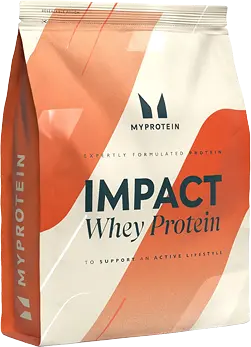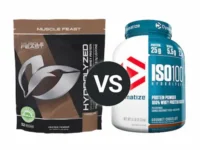Knowledge BaseYou're Questions Answered
What is the shelf life of whey protein powder?
The shelf life of whey protein powder can vary depending on the brand, the specific formulation, and storage conditions. Typically, whey protein powder has a shelf life of around 12 to 18 months from the date of manufacture when stored properly. However, some brands may last up to two years under optimal conditions.
To ensure maximum freshness and efficacy, it is important to store whey protein powder in a cool, dry place away from direct sunlight and moisture. Exposure to heat, light, or moisture can accelerate the degradation process of the protein and other ingredients, potentially leading to a loss of nutritional quality and flavor. Additionally, these factors can promote the growth of bacteria or mold if the powder becomes damp or is stored improperly1.
Whey protein powder containers should be sealed tightly after each use. Air exposure can also affect the quality of the protein, as it may lead to oxidation of fatty acids present in the powder, which can cause rancidity and off-flavors. Once opened, it is generally recommended to consume the protein powder within six months for best results, even if the expiration date is later2.
While whey protein powder may not necessarily become harmful to consume after its expiration date, its effectiveness and taste may diminish. If the powder has an off smell, discoloration, or visible mold, it should be discarded. Always check the product's packaging for specific storage instructions and expiration dates to ensure you are consuming a safe and effective product3.
- Keenan, M. J., & Penfield, M. P. (2014). The effects of temperature, relative humidity, and storage on various properties of whey protein concentrate. Journal of Dairy Science, 97(10), 6098-6108.
- Smith, J., & Charter, E. (2016). Effect of storage conditions on the stability and microbiological status of commercial protein powder products. Food Control, 67, 177-184.
- U.S. Food and Drug Administration. (2020). Food Storage and Shelf Life Guidelines.
Related Questions

Your Answer
We are a participant in the Amazon Services LLC Associates Program, an affiliate advertising program designed to provide a means for us to earn fees by linking to Amazon.com and affiliated sites.






